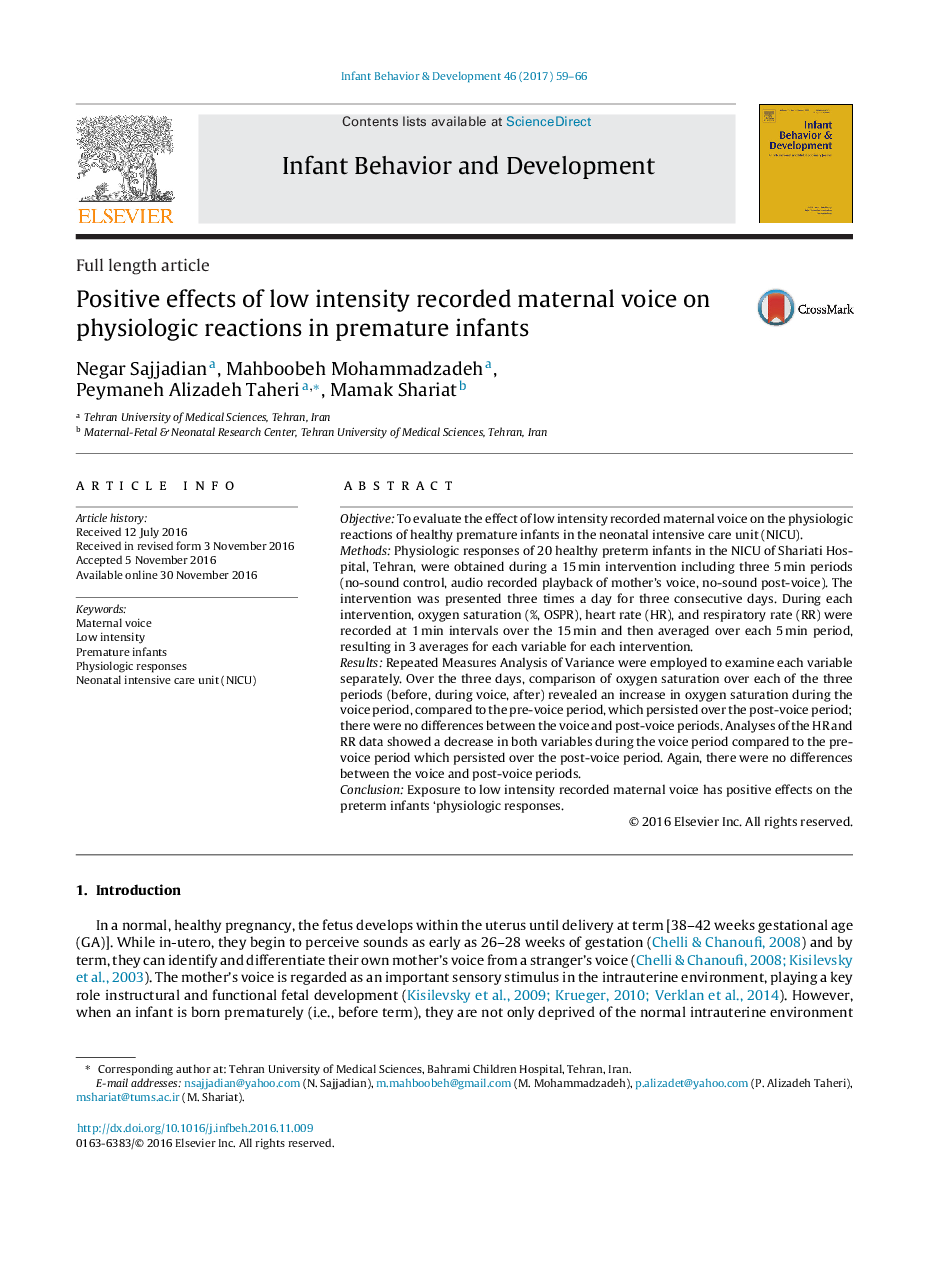| Article ID | Journal | Published Year | Pages | File Type |
|---|---|---|---|---|
| 5039785 | Infant Behavior and Development | 2017 | 8 Pages |
â¢Stabilization of physiologic reactions in premature newborns in NICU is important.â¢Low intensity recorded maternal voice has a stabilizing effect on premature infants' physiologic reactions.â¢Low intensity recorded maternal voice significantly increases oxygen saturation percentage rate in premature neonates.â¢Low intensity recorded maternal voice significantly decreases heart and respiratory rates in premature neonates.
ObjectiveTo evaluate the effect of low intensity recorded maternal voice on the physiologic reactions of healthy premature infants in the neonatal intensive care unit (NICU).MethodsPhysiologic responses of 20 healthy preterm infants in the NICU of Shariati Hospital, Tehran, were obtained during a 15Â min intervention including three 5Â min periods (no-sound control, audio recorded playback of mother's voice, no-sound post-voice). The intervention was presented three times a day for three consecutive days. During each intervention, oxygen saturation (%, OSPR), heart rate (HR), and respiratory rate (RR) were recorded at 1Â min intervals over the 15Â min and then averaged over each 5Â min period, resulting in 3 averages for each variable for each intervention.ResultsRepeated Measures Analysis of Variance were employed to examine each variable separately. Over the three days, comparison of oxygen saturation over each of the three periods (before, during voice, after) revealed an increase in oxygen saturation during the voice period, compared to the pre-voice period, which persisted over the post-voice period; there were no differences between the voice and post-voice periods. Analyses of the HR and RR data showed a decrease in both variables during the voice period compared to the pre-voice period which persisted over the post-voice period. Again, there were no differences between the voice and post-voice periods.ConclusionExposure to low intensity recorded maternal voice has positive effects on the preterm infants 'physiologic responses.
